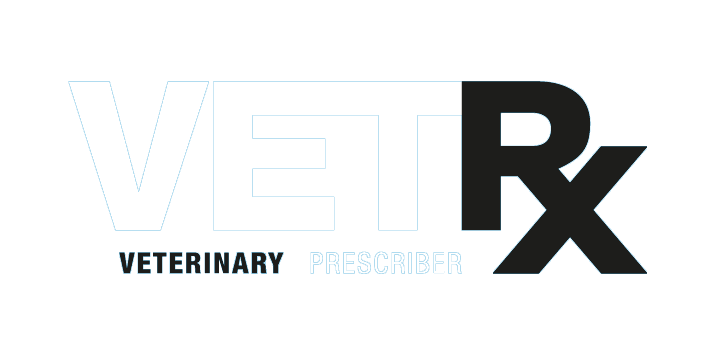Proposed changes to the Veterinary Medicines Regulations – what are they?
Proposed VMR changes - what are they?
The revisions to the UK’s Veterinary Medicines Regulations (VMR) proposed by the Veterinary Medicines Directorate (VMD) have been published and are out now for public consultation until 31st March 2023.
Why are changes being made to the VMR?
Normally the VMR (which were first created in 2005) would be updated every year or so. But the last time any major changes were made was in 2013 (so VMR 2013 is the current version). A lot has happened in the meantime, not least Brexit.
If the UK had remained in the EU, we would be subject to the recently revised EU regulations. As we’re no longer part of the EU, the VMD can propose any changes that are of benefit to the UK (stricly speaking, Great Britain, with Northern Ireland being subject to EU regulation under the NI protocol). But as the VMD would have contributed to the EU regulations review, many of the proposed changes to the VMR are similar to recent changes made to the EU regulations and are aimed at improving the regulation of medicines while reducing regulatory burden where possible.
According to the VMD the proposed changes to the VMR are intended to reflect developments and technical advances in the veterinary medicines sector, reduce regulatory burden where possible, encourage the submission and marketing of new and innovative products to support the aim of increasing availability of medicines, reduce the development and spread of antimicrobial resistance (AMR), and improve the prescription and supply of veterinary medicines for companion animals.
What are the proposed changes to the VMR?
There are around 200 proposed changes in all; too many to list here. Some are simply deletions of text that refers to EU regulations and some are administrative and fee changes affecting pharmaceutical companies. Below I’ve aimed to highlight key changes that would seem to affect prescribers, suppliers and users of veterinary medicines for companion animals. This is my selection and paraphrasing. I urge you to view the VMD’s original documents to see the full proposals, and find out how to comment on the proposals by following this link. The VMD says it welcomes views on the proposed changes, as to whether they will achieve the intended objectives; they are also seeking information on the time and cost to businesses of familiarisation with the new requirements, and the impact of the proposed changes on inidividuals, businesses and wider aspects (such as social or environmental impacts); they are looking for the positive and negative impacts, as well as direct and indirect costs.
Medicines stocks
Medicines stock audit and record-keeping. Proposal to amend the requirements for retailers (including veterinary practices): all records, including records of stock audits and any investigations on discrepancies must be made and kept for 5 years). This would ensure that they are available for inspection by inspectors.
Compliance with medicines storage conditions. Proposal to introduce the requirement that retailers must store veterinary medicines in line with the storage instructions on the label to provide assurance that the quality of medicines is maintained throughout the supply chain. Proposal to introduce an offence for failure to comply with this requirement.
Prescribing POM-V and POM-VPS medicines
Vets prescribing POM-Vs. Proposal to allow vets the option of performing a ”clinical examination or other proper assessment” of an animal or group of animals under their care when prescribing POM-V medicines. According to the VMD this would be a way to reduce the burden on vets, in particular those in remote areas, whilst supporting responsible, safe and effective prescribing.
Oral prescription by vets, pharmacists, SQPs of medicines (including POM-VPS). Proposal to require any person qualified to prescribe veterinary medicines who orally prescribes a prescription medicine – including pharmacists and SQPs orally prescribing POM-VPS medicines – to record the rationale for prescribing the medicine. This change is intended to ensure that medicines can still be prescribed orally, but that there is evidence for the justification for use of the medicine and to provide assurance that veterinary medicines are prescribed appropriately and responsibly, especially where resistance is a concern.
Addition of text to written prescriptions to reduce tampering with prescriptions and (unintended) prescription fraud. Written prescriptions would be required to include the following text: “it is an offence under the Veterinary Medicines Regulations 2013 for a person to alter a written prescription unless authorised to do so by the person who signed it".
SQPs able to delegate supply to a competent person
The proposed change would mean that an SQP who has correctly prescribed/advised on a product and who has authorised its supply in advance, does not necessarily have to be physically present when the product is selected and/or handed over to the customer. This is intended to reduce the burden on SQPs and bring the regulation for SQPs in line with that for vets and pharmacists.
Additional categories of medicines that must be POM-V
Additions to the categories of medicines that must be classified as POM-V, to include medicines that contain antibiotics or beta-agonists, those used for euthanasia, or that are immunological or hormonal. Immunological products currently classified as POM-VPS would remain POM-VPS (subject to established procedures and regulation (for example assessment by the Veterinary Product Committee)
Package information leaflets
Introduction of electronic package information. Proposal to allow pharmaceutical companies to provide an electronic package information leaflet (EPIL), where appropriate, as an alternative to a physical package leaflet. The company must be able to provide the physical package leaflet where necessary and there would be a statement that a copy of the information in written form may be obtained on request; and instructions on how to obtain such information.
Disposal of medicines. Propsal that package leaflets must include the words “use take-back schemes for the disposal of any unused veterinary medicinal product or associated waste materials in accordance with local requirements and with any applicable national collection schemes”;
Stronger rules on veterinary medicines advertising
Proposed addition of a definition of advertising.
Make explicit in the VMR what is allowed and required in terms of the advertising of a veterinary medicine, including requiring a clear communication that a message is an advert.
A new regulation setting out the conditions for inducements and hospitality e.g. any gift, financial advantage or benefit in kind must be inexpensive and relevant to the practice of veterinary medicine or pharmacy.
Advertising of POM-V medicines targeted at professional keepers of animals only to be allowed for immunological medicines (because these can help reduce disease and may contribute to a reduction in the use of antibiotics in farm animals).
Unauthorised medicines and uses (‘cascade use’)
Make more explicit in the VMR that medicines prescribed and/or supplied under the cascade are to be treated as if they were POM-V in relation to record-keeping requirements, assessment of the animal before prescribing and supply. This is intended to ensure that products prescribed and/or supplied under the cascade are appropriately regulated.
Proposal to introduce a new offence of encouraging or facilitating the inappropriate use of the cascade.
New rules for specials manufacturers
A new offence of manufacturing an unauthorised product for administration under the cascade that is pharmaceutically equivalent to a product with a marketing authorisation – except where required by the regulator to solve a product shortage problem.
A requirement for specials manufacturers to provide a list of formulations they have manufactured and product sales data to the VMD. This would improve the VMD’s capability to mitigate supply shortages by being able to identify those who can supply certain active substances.
Require the labelling of special formulations to make it clear that the product is unlicensed.
Compulsory registration of online retailers
Proposal that all UK online retailers of veterinary medicines are registered with the VMD. At present registration is voluntary.
Changes to help reduce the development and spread of antimicrobial resistance
Information about antibiotic use and sales. A proposed new regulation to require vets, manufacturers, marketing authorisation holders or wholesale dealers to provide information in relation to sales and use of antibiotics, to the regulator if, upon review, the voluntary model for antibiotic usage data fails to deliver. Proposal to introduce an offence for failure to comply with such a request for information.
Use of antibiotics for prophylaxis only to be allowed in exceptional circumstances, where the risk of an infection or an infectious disease is very high and the consequences are likely to be severe. Proposal to introduce an offence for failure to comply with this requirement.
About this article
Written by Andrea Tarr, Founder and Director, Veterinary Prescriber. Note that I have selected the proposed changes that seem to me most likely to affect veterinary professionals in companion-animal practice and I have used my own wording in many places for clarification. Please refer to the VMD’s documents to see their original wording and fuller details of the proposed changes, including those affecting the use of medicines in food-production animals.
Want to keep up-to-date on veterinary medicines?
About Veterinary Prescriber
Founded in 2012, Veterinary Prescriber provides evidence-based, practical and clearly-written information for vets and other veterinary professionals on medicines and other treatments that are available for use in animals in the UK. We're proud to be wholly independent, which means that the information we provide is impartial and not influenced by commercial interests.
For more information on Veterinary Prescriber, including how we research and produce our content, or to meet the Veterinary Prescriber team, please see our about us page, or to begin reading that content right now you'll need to sign up for an individual or practice subscription to access our CPD modules.
Veterinary Prescriber offers CPD on medicines for vets, vet nurses and SQPs through The Academy. For further details on The Academy itself, what is covered in the CPD modules, or to sign up today, click here - and lastly if you'd like to contact our team directly, you can of course do so using the details you'll find on our contact us page.

